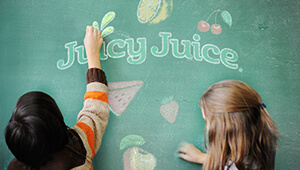Kindness in the Classroom


With the arrival of September comes the start of a new school year and, for many families, a time of mixed emotions. Gathering school supplies can be the first priority, but emotionally preparing your little ones for a new school year is also important. After all, the social skills and principles children learn now can inform the way they relate to others for a long time. Additionally, giving and showing kindness to others can make children more confident, happy and grateful. We gathered some of our favorite lessons about promoting kindness and consideration at school to help you prepare your student for a successful school year.
Listening
Listening is always a wonderful way to demonstrate kindness and respect to others, and listening is one of the most important skills for students to use in the classroom. Demonstrating to others that you hear, process, and appreciate what they have to say can be a small but important message that you care. Talking with little ones about when they thought somebody was a good listener and how it made them feel to be heard can be constructive. Having follow-up conversations about how your child can be and already is a good listener can also encourage them to be attentive. Beyond classroom applications, placing importance in listening will help your child exercise empathy and learn about being a good friend.
Acts of Kindness
Random acts of kindness pepper the Internet periodically, and some schools even make a celebration of showing kindness to others on certain holidays. While these occasional celebrations and viral sensations can make kindness seem rare, talking about and demonstrating acts of kindness at home can encourage your student to be kind every day! Parents know that sometimes the best lessons can be learned from role models, so showing, talking and thanking family members for their thoughtfulness can be an excellent way of teaching children about giving and gratitude. Also, asking young ones to recount or keep a journal of the kind things they did during the week can show them they can make an impact every day. It has been shown that students who show regular acts of kindness to others become happier. Besides the more immediate benefits, kids can gain a lot from being kind at school; they can make new friends regularly and gain the teacher’s favor.
Teaching Positive Statements
Teaching students about positive feedback can prevent their peers from feeling excluded or hurt. Teachers can cover this in the classroom, but parents know it’s always good to start this conversation at home. A lot of teachers love demonstrating how positive talk and actions can affect us and the people around us using metaphors. For example, using a bowl of snacks or pebbles to represent a person’s wellbeing can make this lesson easier to teach. Kind actions can be shown by putting more into the bowl, and mean actions are represented by taking something out of the bowl. Teaching this lesson about how words affect self-worth can show little ones they make a big impact on others with their everyday actions. Also, having more follow-up conversations about how they fill other people’s bowls can reinforce their senses of responsibility and empathy.
Gratitude
Expressing gratitude can be another way of perpetuating kindness. Showing students how to express gratitude for what others do or say can help them let others know they appreciate their thoughtfulness. Plus, gratitude helps foster a warm environment at home. As with many lessons, leading by example with gratitude has a profound effect. Little statements like “Thank you for doing that” or “I really appreciated when you said that” can have a huge impact on how your child feels. It will also encourage your child to continue being kind, as good feedback communicates your appreciation.
Finding Outside Sources
As with parenting, many other people have found methods for teaching kindness and shared them. Be it videos on the Internet, books, movies or TV episodes, there are many helpful tricks and tips out there. Searching the internet for videos about people doing kind things and enjoying books together about being kind to others can also help parents show children the importance of kind attitudes and acts. Plus, who doesn’t like enjoying heartwarming stories with their loved ones?
We know there are many ways to keep a sunny smile on a child’s face long after summer vacation, and these lessons are fun to teach as well as learn. Emphasizing kindness at home before your student starts another year can help provide your little one with lessons to return to when they encounter any challenges in school. Plus, if we make kindness a priority, we can make a large difference in the types of environments our little ones grow in. We hope you enjoy these tips and any other lessons you may create on your own. At Juicy Juice, we wish you a smooth transition into a new and joyful school year!


